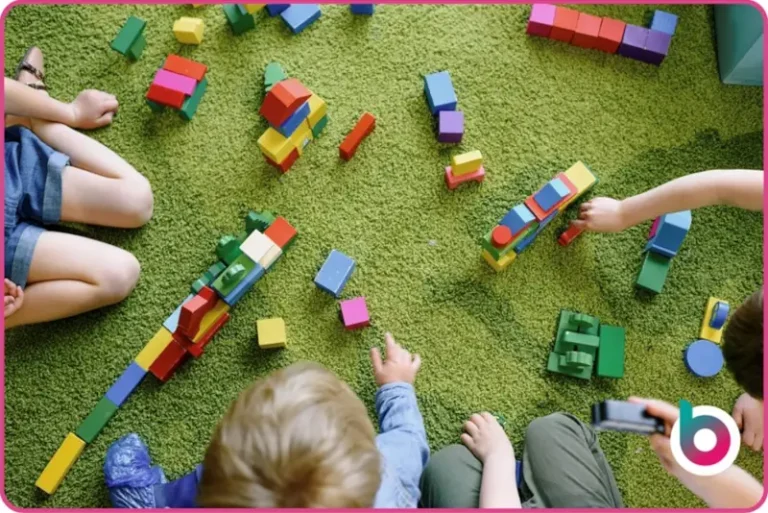Phase 2 of the 2025 Spending Review was released on the 11th June, 2025. This Spending Review sets out departmental budgets and prioritises the delivery of the government’s missions for the next 3-5 years.
In this article, we summarise what the 2025 Spending Review announcements mean for early years and nurseries (PVI and School-Based Nurseries).
What is a Spending Review?
A Spending Review happens every few years. It acts as a financial roadmap for each department’s budget. It also sets out how much funding the government plans to use to deliver their priorities.
The Spending Review is split into two phases:
Phase one confirms the current budget allocations and sets departmental budgets for the coming year (it was released in October 2024).
Phase two: This phase announces the total level of funding planned for delivering the government’s missions (this was published in June 2025 and is known as ‘The Envelope’).
The Spending Review is split into two main areas: resource spending (government day-to-day running and administrative costs, like nurses’ pay) and capital spending (funding used for investment to improve public services, like new roads).
After Labour was elected in 2024, their mission has been to ‘Revolutionise Childcare’.
Labour’s policies for the early years detail loosely how they intend to achieve this by expanding the childcare entitlement offer for parents and increasing the number of nursery places available by 100,000 places through the School-Based Nursery grant scheme, among other planned initiatives.

Spending Review 2025: A summary for early years
When delivering the second phase of the Spending Review, Chancellor Rachel Reeves addressed the House of Commons. Explaining the choices made to the spending plans is how the Labour Party are ‘acting on the promise made in our Plan for Change’.
Here are the main summary points from the Spending Review announcement speech that impact early years, nurseries and schools with nursery facilities (including School-Based Nurseries).
30 hours of childcare funding confirmed
Although early years investment was minimally mentioned during the Spending Review speech, there was a recognition that ‘a good start in life does not just start at school’.
Alongside increasing funding for School-Based Nurseries, there was a commitment to ensuring parents can still access affordable childcare (specifically focusing on working parents). The figure of £1.6 billion has been committed to ensure the childcare expansion continues to be funded to support working parents.
The world of early years saw big changes to funded childcare places in 2024, with the expansion of the funded nursery places to eligible working parents with a child over the age of 9 months. The Labour Party is continuing to support this,. The £1.6 billion is expected to cover the cost of the expansion, with no mention of other initiatives for PVI settings as yet.

£370m for School-Based Nurseries
The applications for schools to be considered for a School-Based Nursery have closed. All schools that applied for the additional funding to set up a nursery provision on their school site have been approved. The Chancellor also confirmed the funding allocation of £370 million in her Spending Review speech.
Under the Labour Party’s Plan for Change manifesto, more nursery places are being made available through the School-Based Nurseries grant. With more funding being announced, the early years community is concerned that a ‘two-tiered system’ could emerge.
With additional funding being allocated to new school-based nurseries for extended outdoor and learning provisions. Private, Voluntary and Independent (PVI) nurseries are querying how they are being supported to enhance their educational offer whilst not experiencing any of the ‘perks’ School-Based Nurseries do (like the exemption of business rates).
There is still the same evident push towards children being school-ready. Mentioned in the speech, Rachel Reeves explained the choices behind the spending plans ‘put us [the Labour Party] firmly on track to meet our Plan for Change commitment- a record number of children being school-ready’.

Expansion of free school meal entitlement
Earlier in June, the Chancellor and the Education Secretary (Bridget Phillipson) announced the expansion of free school meals (FSM) entitlement. Over half a million more children will be eligible for and able to apply for free school meals.
This is because the eligibility criteria now include anybody who receives Universal Credit. The Chancellor has stated that this extension of eligibility will lift 100,000 children out of poverty by giving them access to meals during their school days.
‘Our manifesto commitment is that no child goes hungry, and every child can have the best chance to thrive and succeed.’
Chancellor Rachel Reeves Tweet
The expansion of the FSM eligibility will not bring the associated Pupil Premium Grant funding that FSM children historically benefit from. Again, with PVI nurseries not benefiting from free school meal support, this questions the equality of support for PVI versus School-Based Nurseries.
School breakfast clubs
You’ll be aware of the ongoing plans to increase the number of breakfast clubs children can access before school across the country. In the Spending Review, Rachel Reeves confirmed this plan will continue to be rolled out nationwide. The first 750 schools already have the planned breakfast provision set up and running.
This is something to be aware of if your nursery offers before-school care and clubs.
Family hubs
The Labour Party has announced its investment in family hubs across the nation (figures and plans have yet to be released). These hubs will support parents from pregnancy onwards. They will offer health checks, parenting support and advice, and early learning and development activities.
The aim of these family hubs is to increase the number of children who will join school with the necessary skills to hit the ground running (we call these the 5 S’s of School Readiness).

School core budget increase
School funding (core budget) is set to rise by £4.7 billion per year by 2028-29. This includes the increase in the teacher pay award. Schools will experience an increase in funding per pupil. The focus of the increased funding per pupil aligns with reforming the current SEND system.
In summary
Although the Spending Review implies early education will remain a government priority, there are concerns surrounding how these plans will be delivered in a way that supports the PVI sector for nurseries and childcare.
We create easy-to-digest summaries of all early years topics, including government updates, Ofsted releases and nursery management advice. Subscribe to our free Blossom Blog to receive the latest updates straight to your inbox.